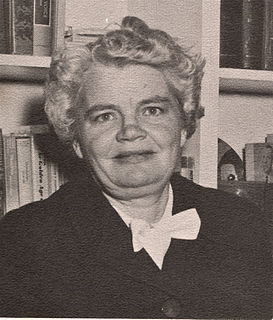A Quote by Nathaniel Hawthorne
Amid the seeming confusion of our mysterious world , individuals are so nicely adjusted to a system, and systems to one another and to a whole, that, by stepping aside for a moment, a man exposes himself to a fearful risk of losing his place forever. (Wakefield)
Related Quotes
The faithful man perceives nothing less than opportunity in difficulties. Flowing through his spine, faith and courage work together: Such a man does not fear losing his life, thus he will risk losing it at times in order to empower it. By this he actually values his life more than the man who fears losing his life. It is much like leaping from a window in order to avoid a fire yet in that most crucial moment knowing that God will appear to catch you.
I — I mean," Kate stumbled on, "that with us there is a time past and time present, and time future, and with your gods perhaps there is time forever; but God in Himself has the whole of it, all times at once. It would be true to say that He came into our world and died here, in a time and a place; but it would also be true to say that in His eternity it is always That Place and That Time — here — and at this moment — and the power He had then, He can give to us now, as much as He did to those who saw and touched Him when He was alive on the earth.
Solitude is the profoundest fact of the human condition. Man is the only being who knows he is alone, and the only one who seeks out another. His nature - if that word can be used in reference to man, who has ‘invented’ himself by saying ‘no’ to nature - consists in his longing to realize himself in another. Man is nostalgia and a search for communion. Therefore, when he is aware of himself he is aware of his lack of another, that is, of his solitude.
At That Moment, it seemed the whole world cared what happened to him. All those people were hugging him and petting his hair. Everybody asked if he was okay. It seemed that moment would last forever. That you had to risk your life to get love. You had to get right to the edge of death to ever be saved.
When we live moment to moment, we place ourselves at the center of life, where infinite wisdom abides, rather than on the periphery, where things are forever changing and we are susceptible to the vagaries of the world. It is in our awareness each moment of our oneness with God that our inner peace and greatest strength lie.
If we apply the term revolution to what happened in North America between 1776 and 1829, it has a special meaning. Normally, the word describes the process by which man transforms himself from one kind of man, living in one kind of society, with one way of looking at the world, into another kind of man, another society, another conception of life.... The American case is different: it is not a question of the Old Man transforming himself into the New, but of the New Man becoming alive to the fact that he is new, that he has been transformed already without his having realized it.
And if someone felt that his life had been an utter failure, and that he himself was only one among millions of wholly unimportant people who could be replaced as easily as broken windowpanes, he would go and pour out his heart to Momo. And, even as he spoke, he would come to realize by some mysterious means that he was absolutely wrong: that there was only one person like himself in the whole world, and that, consequently, he mattered to the world in his own particular way. Such was Momo's talent for listening.






































